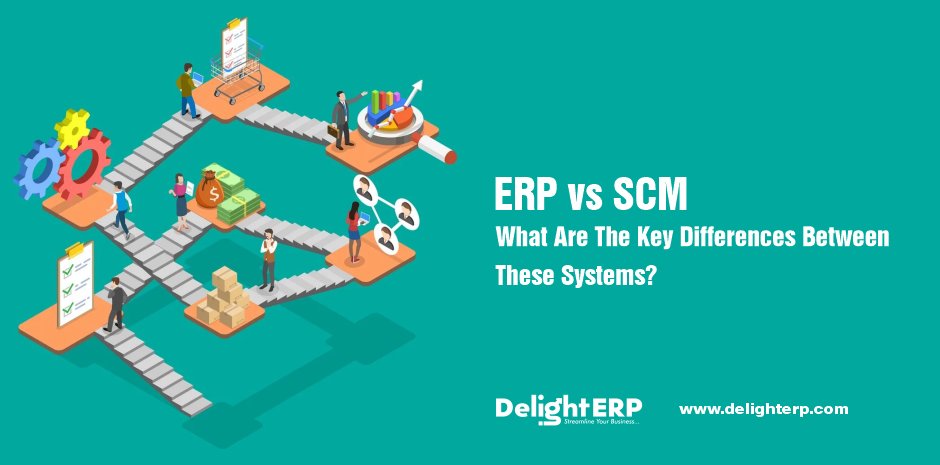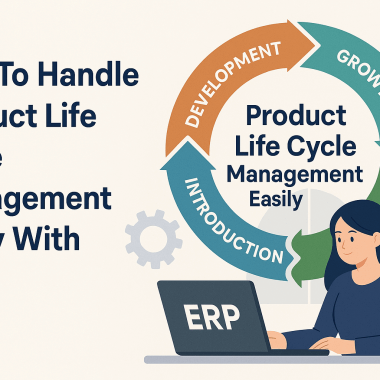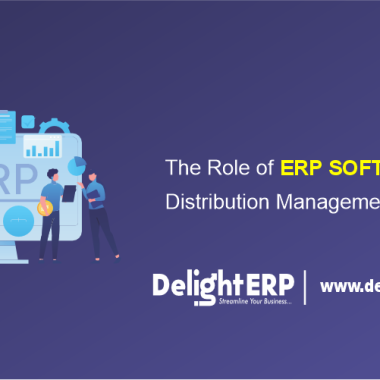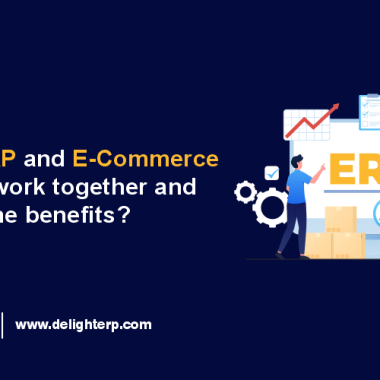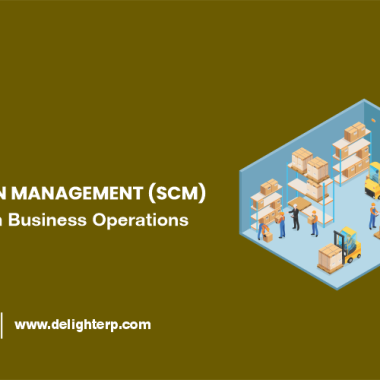Business management tools such as ERP and SCM are widely used. However, the qualities and benefits of each are different. And, in most cases, every organization will question the main differences between ERP and SCM.
In today’s market, businesses develop software to assist them to enhance their production processes and increase their annual sales.
However, choosing the right technologies is essential to any business. Every adviser suggests ERP and SCM software for implementation to manage their working process. However, both software is unique in its own right, as well as in its accessibility.
Let’s take a look at ERP and SCM to have a better understanding of the fundamental differences.
What is ERP? – Enterprise Resource Planning
ERP is also known as the Enterprise Resource Planning software through which the companies can manage their entire businesses.
Businesses may simply manage their day-to-day tasks and enhance their efficiency to maximize their earnings by evaluating ERP software. Every business wants to enhance their profits, and with the help of software, they can do that more efficiently.
Usually, enterprise resource planning software helps businesses in a variety of ways, including:
- For managing the companies productions
- Managing the finances and stocks
- Accessing the role-based members
- Import the leads from the various platforms
- Tracking the curious
- Maintain the stocks
And this is only one of the many advantages that the company’s owner enjoys after implementing enterprise resource planning software.
Companies can grow their businesses in innovative and creative ways development of smart technology. ERP software is designed with cutting-edge, one-of-a-kind capabilities that enable businesses to simply expand their businesses and reach out to a larger number of new customers looking for similar products.
Also Read: What Are Process Manufacturing Challenges Will ERP Software Solve?
What is SCM? – Supply Chain Management
Before we can learn about supply chain management, we first should understand the definition of a supply chain.
Every manufacturing industry is in sync with one another. When enterprises receive orders for product manufacturing, they purchase raw materials, manufacture the products, and then deliver the final products to end customers within the deadline. This procedure is known as the supply chain, and to earn consumers’ trust, businesses must provide materials to their clients on time.
The supply chain system is managed across the software, from procuring raw materials to delivering final products. Companies who use SCM in their company gain a wide range of benefits, including:
- Easily identified the problems
- Optimizing price dynamically
- Reduce the operating cost
- Maintain the cash-flow
- Maximize the revenues
Above all, the advantages are implemented in enterprises when the Supply Chain Management system is deployed. Even the businesses may easily complete their entire production process and send the items to their customers within the allotted time.
Not only that, but by optimizing the SCM system in the company, they will be able to easily maintain raw materials and save costs, allowing them to increase profits. Companies reduce their costs and increase their cash flow as a result of implementing the supply chain management system.
Recommended for you: What Is Supply Chain Management (SCM)?
ERP vs SCM
The differences between ERP and SCM software are described here.
1. Functionalities
Enterprise resource planning software includes a wide range of functionalities. Companies utilize only one software to manage their entire manufacturing process, from purchasing raw materials to providing items to end clients, saving consumer data, sales information, purchasing information, accounting, etc.
When compared to enterprise resource planning software, supply chain management software provides fewer features. Companies that use SCM software in their organizations monitor the supply of products such as the aim to manage the purchasing of materials for production and ending with the delivery of final products.
2. Complexity
Implementing and operating the enterprise resource planning software is a bit more complex for businesses to operate.
While implementing and operating the supply chain system is less complex than ERP software.
3. Work Process
The ERP software allows businesses to manage their whole internal working process. The enterprise resource system gives businesses the skills to control their entire workload while using a single system. Even today, many software development organizations offer ERP software, which allows manufacturers to manage their manufacturing processes as well as their accounts from a single platform.
Companies might include other organizations while enhancing the supply chain system. Because manufacturing industries are responsible for delivering items to customers. When companies receive orders from clients, they begin operating the SCM and accomplish successful results in delivering the product.
4. Sourcing
In terms of sourcing, Enterprise Resource Planning is quite static.
In terms of sourcing, Supply Chain Management is relatively dynamic.
5. Activities
Any corporation can manage its entire business activity with enterprise resource planning software. On the other hand, ERP is the purpose of focusing on task-based tasks.
The industries must focus on supplying materials before the deadline while employing the supply chain management system. In short, organizations are bravely focused on managing their relationships with their customers with the help of SCM.
6. Processing speed
The enterprise resource planning software has a slower processing speed than the supply chain management system. On the other hand, the SCM processes data faster than the ERP.
7. Key features
Key features of the ERP:
- Manufacturing Management
- Financial Management
- Human Resource Management, etc.
Key features of the SCM:
- Production Management
- Inventory Management
- Logistic Management
- Supply Management, etc.
Which software do you choose to manage your business: ERP or SCM?
Companies are confused about which software to implement after gaining a deep understanding of enterprise resource planning and supply chain management solutions.
If corporations have a large-scale production process and are spread across various locations, it needs software that allows them to run all of their numerous departments from a single platform. And Enterprise Resource Planning (ERP) is the software that allows company administrators to easily and effectively manage their multi-location operations.
SCM is the greatest solution for startup manufacturing industries that want to manage their production process easily and deliver finished products on time to their loyal customers.
Every software has its own set of features and benefits, which are experienced by business owners after the software is implemented. As a result, while managing the systems, industries must be clear about their needs and desires. They choose the software that would help them achieve their goal profit ratio while reducing expenses.
Conclusion
While using the SCM or ERP, businesses or organizations can easily maintain their production process and enhance sales. Both are unique in terms of how they are used and how they work. However, both assist manufacturers in achieving their objectives and in gaining more consumer trust to increase revenue. As a result, by integrating an ERP or SCM system in the organization, business owners can enhance revenue while lowering production costs.
Delight ERP means, Business Grow!! Contact Us for a Free demo!

